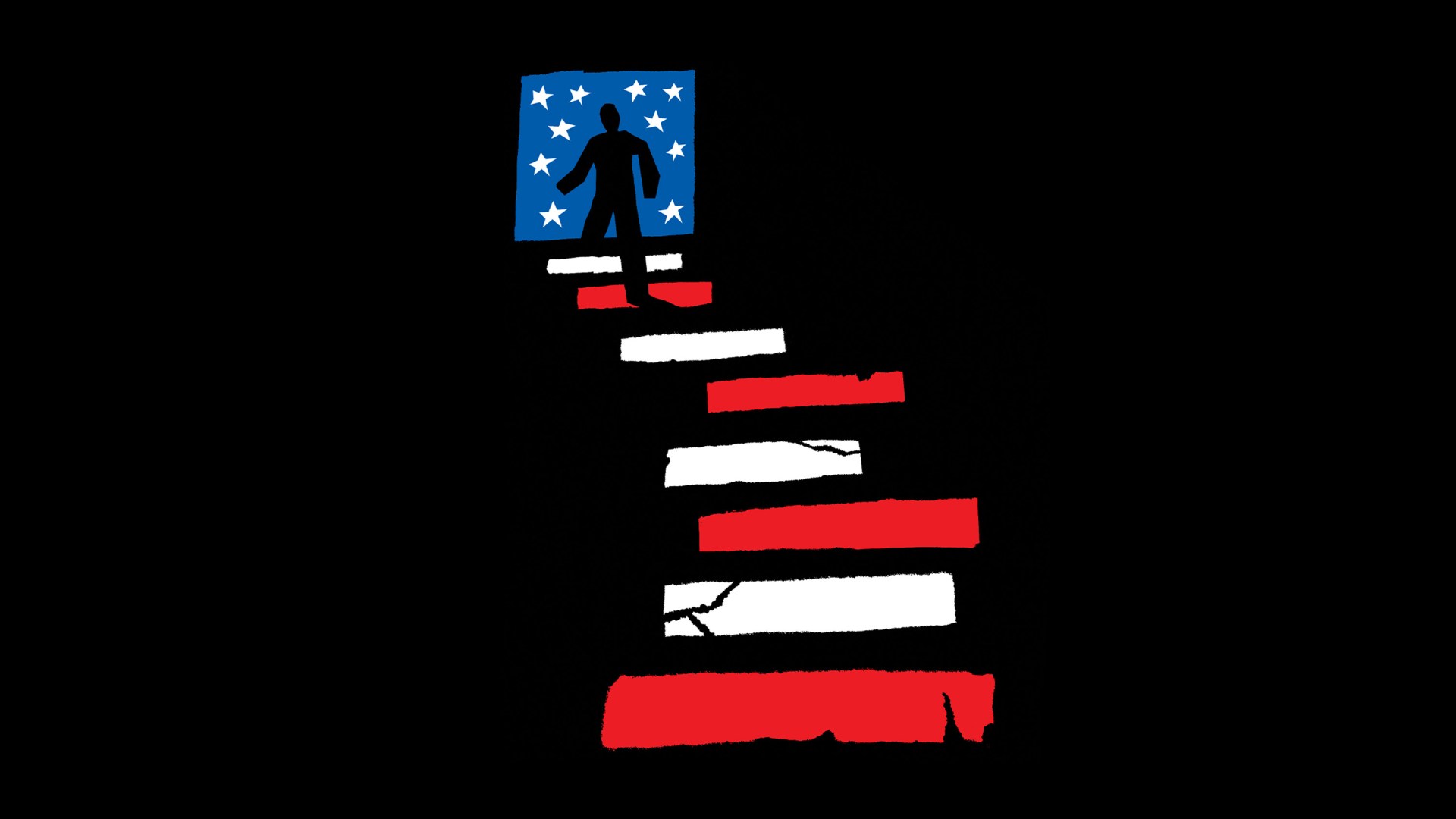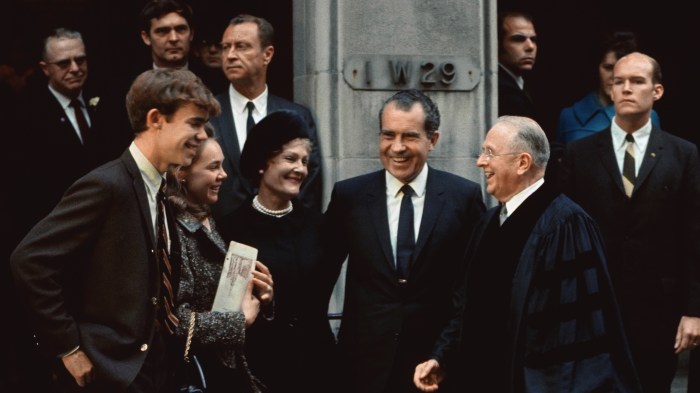Trying to get comfortable, I shifted my head on the hard table. “How is this volume?” asked a voice through my earbuds. I made a thumbs-up signal for the technician on the other side of the glass wall.
I exhaled and clutched the remote with the emergency exit button as the table retracted into the narrow MRI tube. I hoped that multiple doses of anxiety medicine would help me fight off a panic attack for the next half hour.
Seven years prior, in 2008, I had graduated from high school and left home for college. At the time, I considered myself a Christian. I was baptized at 14 and attended church on and off through high school, but my faith was nominal and insufficient to weather the storm I was about to create.
In college, I started living by an increasingly self-centered ethic. Whatever was going on—parties, classes, work—I wanted to do it best. I wanted to be the most successful, interesting, and important person in the world. The more self-oriented my life became, the more highly I thought of myself and the more I subscribed to intellectual arguments against the existence of God.
By my early 20s, I was a staunch atheist. I thought I knew God did not exist and thought I saw all the fallacies in Christianity. I ridiculed Christians outwardly on several occasions and inwardly on countless others.
As I pursued personal glorification, my health began to decline. I suffered my first panic attack at 19 years old. It was unlike anything I had ever endured. My heart raced, my face burned, my blood ran ice cold, and the inside of my body tried to rip through my skin.

It is difficult to describe how desperate, overwhelmed, and irrational I felt during panic attacks. I remember one that came inside a minivan breezing down the highway. In that moment, I thought I would have been safer throwing myself from the moving vehicle.
As my panic attacks became more frequent and less predictable, an ever-present anxiety took hold of my life, and my physical health deteriorated further. My throat felt swollen to the point where I worried about breathing. My hands, feet, and face alternated between tingling, burning, and going numb. Muscles began twitching involuntarily. My legs buzzed so badly when I was trying to sleep that I would walk on my apartment complex’s treadmill in the middle of the night. My testosterone plummeted, my lymph nodes swelled to alarming proportions, and I broke out in shingles.
By my final semester of law school in 2015, I was terrified, desperate for relief and answers, bouncing from doctor to doctor and self-medicating to make it through life. When I finally got my MRI, the imaging came back clean—yet another inconclusive test that left the doctors guessing.
That May, I graduated and began studying for the bar exam. I took the summer off from work and adopted a rigid schedule of studying, exercise, and sleep. The regimented lifestyle kept me preoccupied, and I found some relief—but only temporarily. During the three-month wait for my exam results, anxiety retook control.
I fixed my hope on two things: passing the bar exam and proposing to my girlfriend, Hannah. A few months later, within an eight-day stretch, both went as planned. I was thrilled but also deeply concerned. My anxiety had not improved, and a new fear crept in: The two dreams that dominated my life had come to fruition, and if those hadn’t brought peace, then what could? I began despairing that I was incapable of fulfillment.
Then something strange happened.
Before our wedding, Hannah and I lived downtown at the epicenter of urban revitalization in San Antonio. Countless times, as we browsed nearby restaurants, coffee shops, and a farmers’ market, we passed a small building labeled “Pearl Street Church.” Every Sunday, smiling people lined up outside, covering the sidewalk and spilling over the bike lanes into the street.
One day, I suggested to Hannah that we should attend the church. I had no intention of believing in anything. I anticipated emotion-evoking music and a social-club vibe. I also suspected Hannah wanted to attend church, and if I went with her, it would boost my respectability as a future husband.
We attended our first 6 p.m. service sometime in late 2015 or early 2016. When we entered the building, I steered us to the least crowded section in the back, but I could not hide. Numerous people came up and greeted us in the minutes before the service, and the lead pastor welcomed us with an enthusiastic smile. When he walked onstage to deliver the message, I was skeptical, guarded, and ready to shred him in my mind. But he shocked me.
His sermon explored Genesis 22, in which God told Abraham to sacrifice his only son. This was one of the Bible stories I would cite as an atheist to debunk the faith and ridicule Christians. “Why would a supposedly loving God demand that someone kill his child as part of a test?” I would ask.
But that evening, as the pastor spoke, my eyes were opened. God’s instruction to Abraham was not a pointless or sadistic test; it prophetically foreshadowed the work of Jesus. It was God’s way of showing the inestimably high price he would pay for our salvation. And in the end, God did not require Abraham to pay that price but chose instead to pay it himself.
Leaving the church that evening, I knew my intellectual arguments against God and the Bible were not as ironclad as I had imagined. I was still an atheist—or at least highly skeptical. But the gospel the pastor preached was not the straw-man religion I had grown accustomed to attacking. It was something else, something I did not understand, something that left an ineffable impression of truth upon me. I needed to learn more.
Over the next few months, I read through the New Testament and several apologetics books, and Hannah and I attended the same church service each Sunday. All the while, anxiety continued to plague me, and I felt myself approaching a breaking point.
It came in April 2016, about four months after we had started attending church. It was 2 a.m., and I was having another sleepless night. I got out of bed and spread my yoga mat on our living room floor. I tried to stretch the buzzing and twitching out of my legs, but there was no improvement. After several minutes, I gave up and fell face down on my mat.
I was physically, mentally, and emotionally exhausted. I was tired of trying and failing to carry the overwhelming burden of my own expectations. I was tired of the parade of physical ailments and the cold flood of anxiety. I was tired of fear and, most of all, tired of being tired. In that moment, face down on my yoga mat in the middle of the night, I was prostrate in every sense of the word.
Then, for the first time in years, I prayed. I prayed the only words I could think of: “Thy will be done.” I prayed those words over and over until I found the energy to pray in more detail. I even prayed that if God willed for me to die, then his will be done.
Everything changed that night. Philippians 4:6–7, which I encountered months later, captures the shift:
Don’t worry about anything; instead, pray about everything. Tell God what you need, and thank him for all he has done. Then you will experience God’s peace, which exceeds anything we can understand. His peace will guard your hearts and minds as you live in Christ Jesus. (NLT)
The peace of God changed my life. It gave me power over anxiety and fear, and my body began to heal as joy and hope replaced depression and despair. Three years later, my father was diagnosed with esophageal cancer at 55. Had this happened when I was an atheist, it would have destroyed me. But I was armored with God’s peace, and God provided the courage I needed to support my father and encourage him with the Good News.
Kyle Zunker is the author of Amazing Courage: Letters to My Father on Conquering Fear through Faith and a blog dedicated to helping people understand faith.
























































